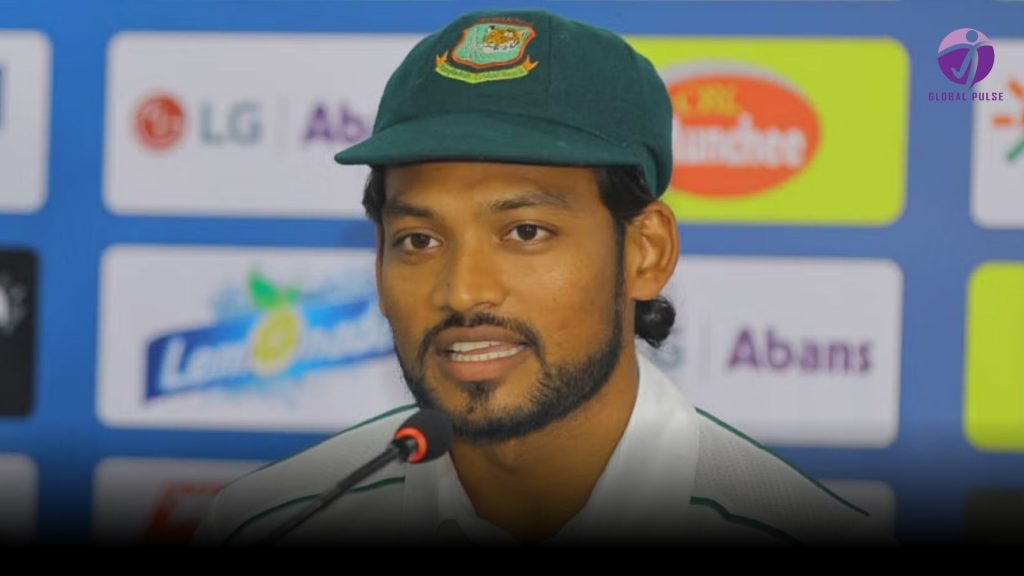At the Sinhalese Sports Club in Colombo, the atmosphere was charged as Bangladesh faced a staggering innings defeat in the second and final Test of the two-match series today.
On that subdued afternoon, in the aftermath of a disappointing Test, Najmul Hossain Shanto stepped into the press room and offered more than just a statement; he presented a reflection of the inner workings of the Bangladesh Cricket Board [BCB].
“I am resigning from my position as the captain of the Bangladesh Test team … This is strictly business. It’s all about enhancing the team’s performance.
Yet, under the polished exterior lay a palpable sense of disappointment, frustration, and, most significantly, disillusionment. The events that transpired in the lead-up to this pivotal moment were not just a shift in leadership; they served as a stark reflection of the BCB’s shortcomings under its current regime. The organization has struggled to meet the fundamental standards of professionalism and transparency that contemporary cricket necessitates.
Let’s analyze the situation.
Shanto has taken the helm as captain across all formats under the previous administration. His performance in T20Is was underwhelming, leading him to take the initiative to resign from that position. In the realm of Tests and ODIs, he has maintained his leadership role, achieving notable success in the longer format. Statistically, he stands out as the most successful Test captain in Bangladesh’s history when it comes to win ratio.
In a strategic move ahead of the recent tour to Sri Lanka, the BCB has decided to extend his tenure as Test captain. Shanto arrived at the June 12 pre-tour press conference with the anticipation of addressing the media not just as a player but also as the ODI captain. A meeting was on the agenda with head coach Phil Simmons to delve into the details of the ODI squad.
The next turn of events left everyone scratching their heads. In a pivotal virtual meeting held that day, the board made the significant decision to appoint Mehidy Hasan Miraz as the captain of the ODI squad.
What about Shanto? He was left entirely out of the loop, not even given a heads-up before the decision was made. The announcement was official, the press release hit the
airwaves the following day, and the individual who believed he was still at the helm discovered the news just like everyone else: through the media frenzy.
This was not merely a matter of differing viewpoints. This was overlooked.
What happened to the communication? What happened to the respect that should have been afforded to the captain of the national team? BCB President Aminul Islam Bulbul later asserted that Shanto had come to terms with the decision following a discussion with a board director.
However, Shanto’s public resignation and his statements during the post-match press conference reveal a contrasting narrative. “This move is aimed at enhancing the team’s performance,” he reiterated, but it was evident that he found himself backed into a corner, forced into this choice due to a breakdown in communication and policies being imposed rather than collaboratively addressed.
The irony of the current situation cannot be overlooked, as both Bulbul and Nazmul Abedeen Fahim, prominent figures in the BCB leadership, were once outspoken critics of the very opaque, top-down decisions that have now come to define their administration.
Outside the power circle, they were vocal advocates for transparency, communication, and respect for the players. In a surprising turn of events, the new leadership has implemented a policy shift that has effectively sidelined a sitting captain, all without engaging in a direct conversation.
The central concern revolves around the BCB’s unclear strategy regarding its leadership positions. Shanto highlighted the complexities involved in overseeing three distinct captains across the various formats of the game.
The cricketing philosophy at play is undoubtedly a topic ripe for debate, and it’s only natural that differing opinions emerge within any administration. However, what stands out as utterly unacceptable is the glaring absence of professionalism in its execution. Shouldn’t the board engage in a dialogue about the multi-captain model with those directly impacted if they genuinely stand by this approach?
The lack of that dialogue speaks volumes.
As the cricketing world commemorates a quarter-century of Test status, this resignation casts a shadow, revealing an unsettling truth that cannot be ignored. As the BCB celebrated its achievements, one of its most promising captains found himself grappling with feelings of being overlooked, disrespected, and disillusioned.
It’s a stark reminder that while commemorative silver jubilee banners may adorn the stadium, they hold little weight if the individuals tasked with propelling the team into the future are not afforded the fundamental respect they deserve.
Shanto maintained his composure. He refrained from specifying any individuals. His exit resonates as a bold and unmistakable statement. In a landscape often marred by ego, lack of transparency, and hierarchical dominance, Shanto’s composed stance resonates more powerfully than any emotional display could ever achieve.












